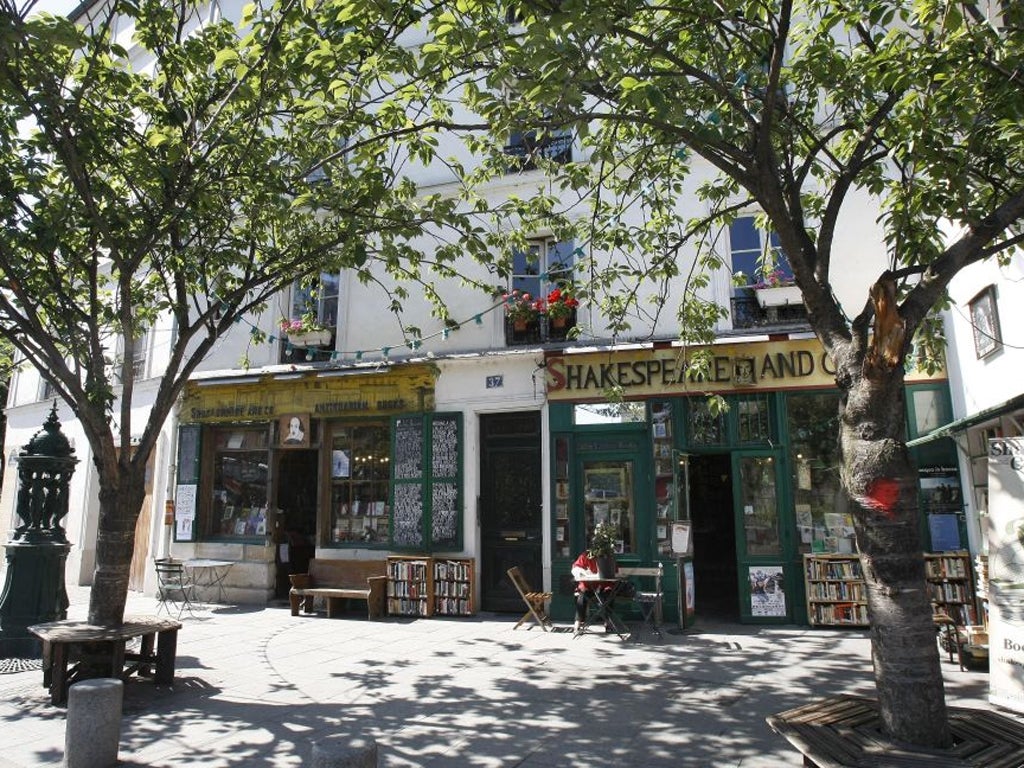A glorious chapter ends on the Left Bank
George Whitman, who has died aged 98, used his Paris enclave to host literary giants and feed the dreams of aspiring writers

For English-speaking book lovers in Paris, a delightful chapter in the literary history of the city has come to an end. George Whitman, the founder of Shakespeare and Company – bookshop, "free" boarding house and "socialist utopia" – has died, aged 98.
Mr Whitman, who ran the shop near Notre Dame Cathedral until five years ago, was one of the last links with the city's glorious past as a centre of English-language literary genius.
His jumbled, unconventional bookshop on the banks of the Seine played host in the 1950s to Henry Miller and the American "Beat" poets.
In 1964 it took over the name, and the spirit, of a pre-war shop and library which had published the first edition of James Joyce's Ulysses and helped a struggling young writer called Ernest Hemingway.
The shop is now run by his 30-year-old daughter, Sylvia Beach Whitman, whom he named after the founder of the original Shakespeare and Company, who died in 1962.
The shop was closed as a mark of respect yesterday. Bunches of flowers and candles piled up on the street outside. The doors were plastered with handwritten messages. One read: "The bookshop was the circle of delicate energy which is the world of great twentieth-century eccentrics."
Mr Whitman, born in New Jersey in 1913, came to Paris on a "GI Bill" scholarship as a student at the Sorbonne University after the Second World War. He founded the bookshop, initially called Le Mistral, in 1951.
From the beginning, he offered free accommodation to writers, or to anyone else, who agreed to work in the shop for two hours a day. More than 40,000 people are estimated to have stayed in the bookshop in the past 60 years. Mr Whitman's only other demand was that they should read a book a day and write a brief description of themselves and their ambitions before they left.
His daughter said yesterday that she had been astonished by the number of anonymous tributes to her father.
"George was so curious about people," she told The Independent. "He was always generous to people who weren't necessarily given chances elsewhere. He gave young people beds and jobs and a foundation to build from.
"He was also one of the most eccentric people you will ever meet. I am an only child but he always said that the people who came and stayed were my brothers and sisters. He was interested in people and wanted to put people on the right path, often through books.
"His generosity is really his legacy, something that is increasingly difficult to find in a big city like Paris."
George Whitman liked to call Shakespeare and Company a "socialist utopia masquerading as a bookshop". In common with other socialist utopias, the shop was not to everyone's taste.
The warren of shelves, crammed with new and second-hand volumes, is a paradise for those who want to browse for bargains or first editions. It can be baffling for those who just wanted to buy the latest thriller by Cormac McCarthy or Dan Brown.
On hot days in August, unromantic shoppers have been known to find that recently vacated beds among the bookshelves give rather too intimate an atmosphere. This misses the point. Shakespeare and Company is far more than just a bookshop.
One scribbled message on the shop's door yesterday was more in tune with the spirit of George Whitman. It read: "You were always the kooky old fucker that the situation called for."
Another message quoted from a poem that was dedicated to William Shakespeare by his friend and rival Ben Jonson: "Thou art alive still, while thy book doth live and we have wits to read and praise to give."
Sylvia said that her father often compared the shop to a book. "With George it was real chaos – but at the same time it was the magic of organised madness. It was all about magic and mystery, and George used to say that each corner of the shop was like an unfinished chapter of the novel he never otherwise wrote."
A chapter may have ended but the book of Shakespeare and Company is not over yet. Sylvia plans to preserve the shop much as her father always wanted it. She has, however, as a nod to the 21st century, created a website and installed a telephone.
Join our commenting forum
Join thought-provoking conversations, follow other Independent readers and see their replies
Comments
Bookmark popover
Removed from bookmarks